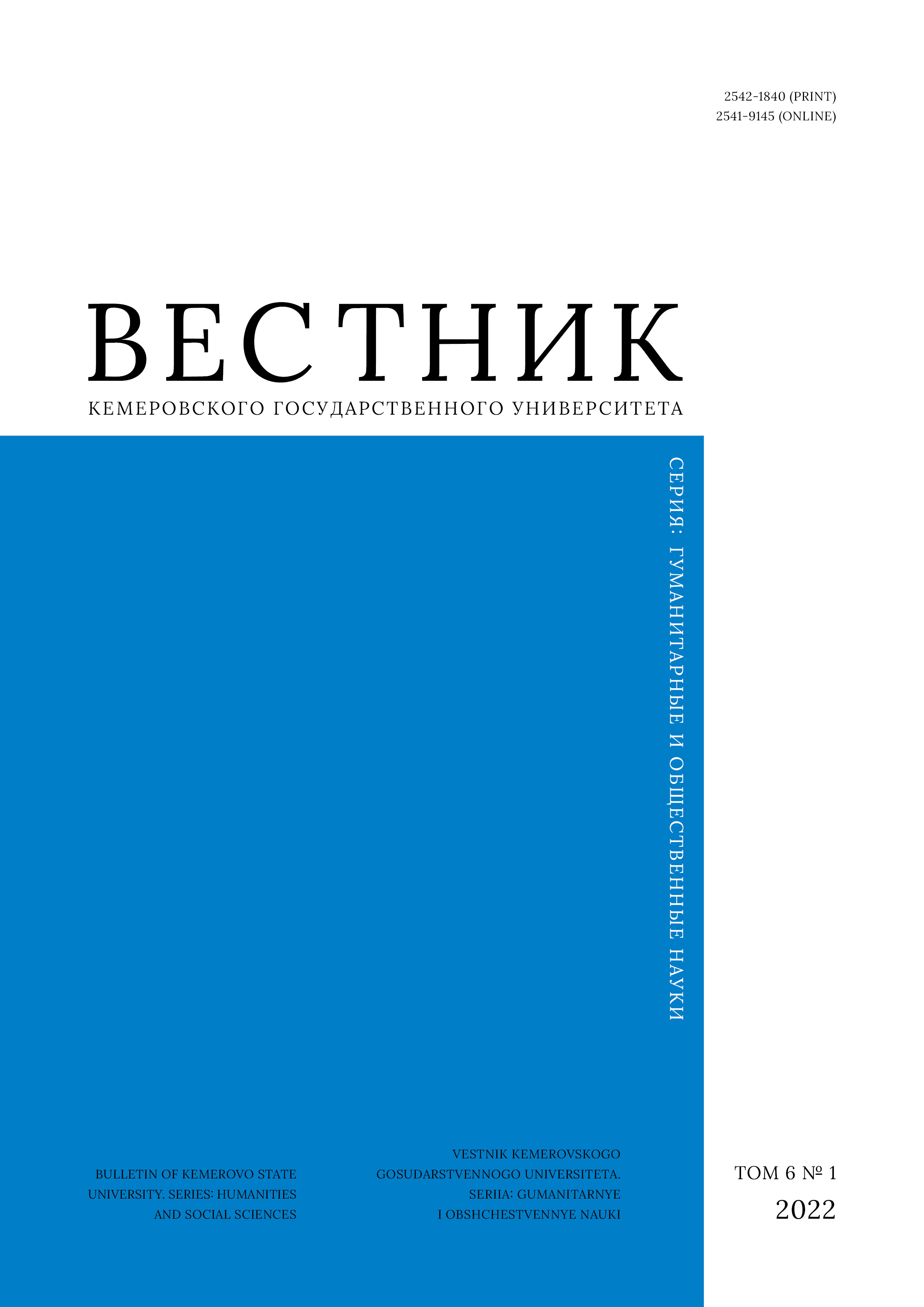Kemerovo, Russian Federation
Kemerovo, Russian Federation
The present research featured the development of cognitive processes in senior preschoolers. It focused on the specifics of role-playing games, which provide positive dynamic transformations of cognitive abilities at this age. The article describes various theoretical approaches to game as a cultural phenomenon that facilitates socialization and enriches experience. It also describes the cognitive processes and their development, which depend on the personality of a particular preschooler. A role-playing game is a leading type of preschoolers' activity. They acquire new ideas about the world, learn to compare data about objects, develop useful patterns, and accumulate experience in problem solving. Children's emotional attitude to their own activities and those of their game partners accompany the dynamic transformations of cognitive processes, thus increasing the productivity of various types of activities.
cognitive processes, emotional regulation, thinking, generalization, classification, imagination
1. Selivanov V. V. Introduction. Psikhologiia kognitivnykh prostessov, 2017, (6): 7-8. (In Russ.)
2. Denisov A., Bulay P., Pitlik T., Cherenkevich S. Cognitive processes and biological neural networks. Nauka i innovatsii, 2015, (12): 29-32. (In Russ.)
3. Prokhorov A. O., Yusupov M. G. The interaction between mental states and cognitive processes of a subject as manifested in students' learning activities. Experimental Psychology (Russia), 2010, 3(2): 33-44. (In Russ.)
4. Akhmadieva L. R. The role of cognitive processes in a formation of communicative skills. Vestnik of Moscow State Linguistic University, 2015, (18): 16-29. (In Russ.)
5. Okatova T. N. Cognitive development in senior preschoolers. Preemstvennost v obrazovanii, 2020, (25): 263-267. (In Russ.)
6. Faskhutdinova Yu. F. Cognitive development in children with mental retardation. NB: Pedagogika i prosveshchenie, 2013, (5): 24-45. (In Russ.) https://doi.org/10.7256/2306-0425.2013.5.9135
7. Golitsyn V. B., Shcherbakova E. I. Cognitive activity of preschoolers. Sovetskaia pedagogika, 1991, (3): 43-48. (In Russ.)
8. Korotaeva E. V., Nefedova A. N. Development of cognitive activity in senior preschoolers. Pedagogical Education in Russia, 2012, (3): 176-180. (In Russ.)
9. Vygotsky L. S. Psychology. Moscow: EKSMO-Press, 2000, 1008. (In Russ.)
10. Elkonin D. B. Child psychology. Moscow: Akademiia, 2008, 384. (In Russ.)
11. Ivanova E. V. The influence of role-playing games on the development of the game activities at children of middle preschool age. International Journal of Humanities and Natural Sciences, 2016, (1-1): 116-119. (In Russ.)
12. Evdokishina O. V. Influence of game-based activity on socialization of preschool children. Mir nauki, kultury, obrazovaniya, 2015, (2): 205-207. (In Russ.)
13. Smirnova E. O., Gudareva O. V. Modern five-year-old children: game and mental development. Pt. 1. Doshkolnoe vospitanie, 2003, (10): 63-73. (In Russ.)
14. Schantz E. A. Role plays activities to familiarize preschoolers with adults. Journal of Shadrinsk State Pedagogical University, 2016, (1): 58-63. (In Russ.)
15. Belotserkovets N. I., Chupaha I. V. Plot-role game as a means of the formation of the humanistic direction in children of preschool. Mir nauki, kultury, obrazovaniya, 2019, (1): 84-87. (In Russ.)
16. Andreeva N. A. Game activity as a way to form speech etiquette skills of preschool age children. Journal of Shadrinsk State Pedagogical University, 2017, (1): 94-99. (In Russ.)
17. Kuznetsova O. N. Formation of humane feelings in preschool children in the process of role-playing games. Vestnik Penzenskogo gosudarstvennogo universiteta, 2015, (2): 32-36. (In Russ.)
18. Golubkov V. O. Subject-role game as means of development of empathy in children of preschool age. Problemy sovremennoi nauki i obrazovaniia, 2016, (12): 118-120. (In Russ.)
19. Zotova I. V., Duritskaya V. S. Role-playing game as an effective method of developing the communicative abilities of preschool children. Dostizheniia nauki i obrazovaniia, 2018, (4): 49-52. (In Russ.)
20. Smirnova E. O., Ryabkova I. A. The structure and variants of preschoolers’ role-playing games. Psikhologicheskaya nauka i obrazovanie, 2010, (3): 62-70. (In Russ.)
21. Elkoninova L. I. The unit of role-playing game. Voprosy psikhologii, 2004, (1): 68-69. (In Russ.)
22. Bazhanova T. V. Development of the form of role-playing game in preschool age. Cand. Psychol. Sci. Diss. Abstr. Moscow, 2008, 26. (In Russ.)
23. Artemyeva T. V. Methods for studying disorders of mental development of preschool children. Kazan: Otechestvo, 2013, 142. (In Russ.)
24. Psychological workshop "Thinking and speech", comps. Malenov A. A., Malenova A. Yu. Omsk: OmGU, 2005, 108. (In Russ.)
25. Gatanova N. E., Tunina E. G. Program for the development and upbringing of a preschooler. Tests for four-year-olds. St. Petersburg: Neva; Moscow: Olma-Press, 2002, 117. (In Russ.)


















